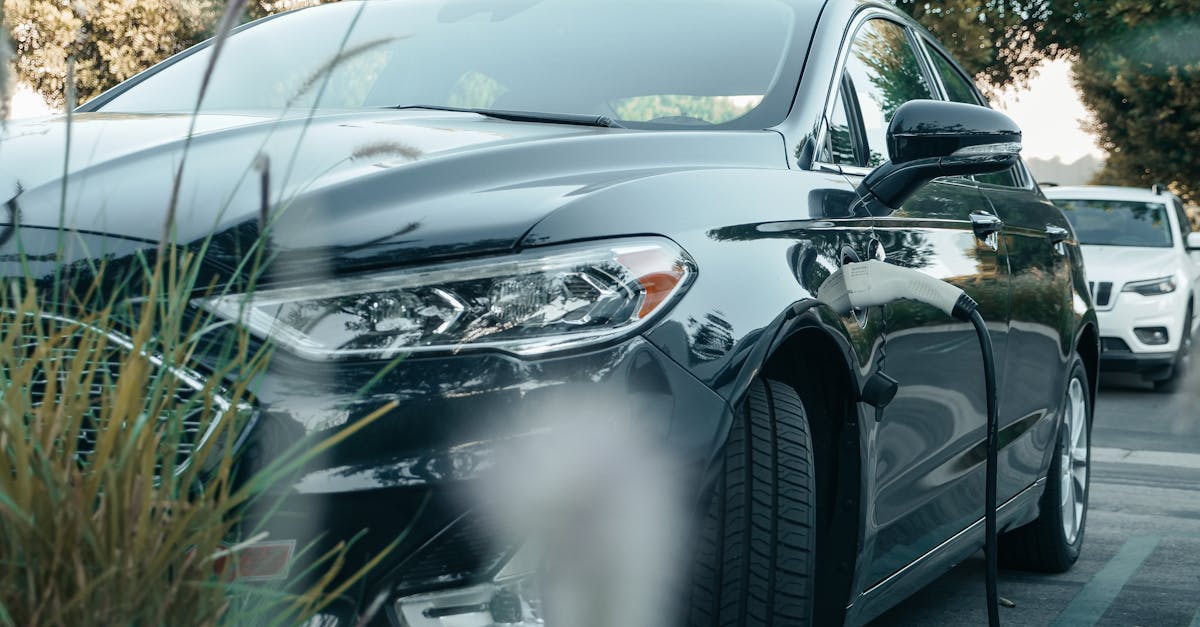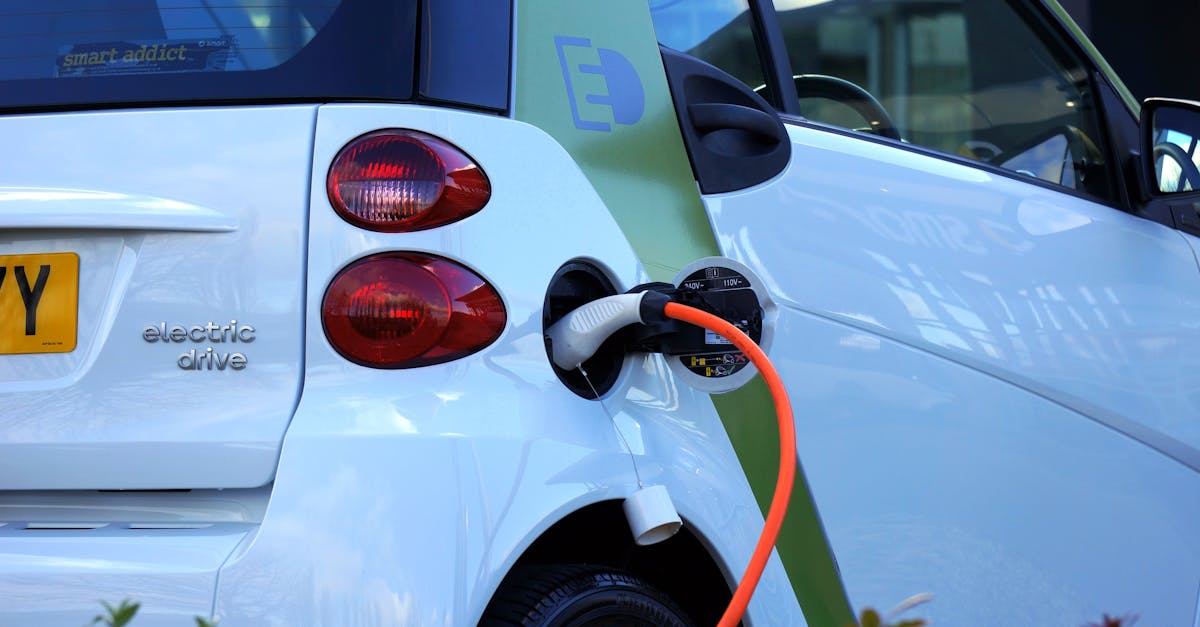
- 1
- 1.1 The Importance of Efficient EV Charging
- 1.2 Understanding the Factors Affecting Charging Speed
- 1.3 Why is my car charger so slow?
- 1.4 Tips for Optimizing EV Charging Efficiency
- 1.5 Common Issues with EV Charging Infrastructure
- 1.6 How to Troubleshoot Slow Charging Problems
- 1.7 Improving Battery Charging Performance
- 1.8 Innovations in Charging Technology
- 1.9 Conclusion

As electric vehicles (EVs) become increasingly popular, the efficiency and speed of their charging process is paramount. If you’ve noticed your EV charging slowing down unexpectedly, you’re not alone. In this article, we will delve into the reasons why your EV charging might be slower than usual, providing insights to help you optimize your charging experience.
Get ready to uncover the mysteries behind sluggish EV charging and learn valuable tips to ensure that your vehicle charges swiftly and seamlessly. By the end of this article, you’ll have a clearer understanding of how to overcome slow charging hurdles and maximize the performance of your EV’s battery, paving the way for smoother journeys ahead.
The Importance of Efficient EV Charging
Efficient EV charging is crucial for optimizing the performance and longevity of your electric vehicle. By charging your EV efficiently, you not only save time but also extend the lifespan of your battery, reducing overall maintenance costs. Additionally, efficient charging contributes to a more sustainable future by minimizing energy waste and promoting eco-friendly transportation practices.
When you prioritize efficient EV charging, you are actively participating in reducing carbon emissions and combating climate change. By embracing fast and effective charging practices, you are contributing to a cleaner environment and supporting the shift towards renewable energy sources. Efficient EV charging not only benefits individual drivers but also has a positive impact on the larger community by promoting sustainable transportation solutions.
Moreover, efficient EV charging enhances convenience and flexibility for EV owners. With faster charging speeds and optimized processes, you can enjoy seamless travel experiences without lengthy downtimes for recharging. Embracing efficient charging practices empowers drivers to make the most of their electric vehicles, encouraging widespread adoption of clean energy technologies for a brighter future.
Understanding the Factors Affecting Charging Speed
Electric Vehicle (EV) Battery Capacity: The size and state of your EV’s battery play a crucial role in determining charging speed. Larger battery capacities generally take longer to charge fully, while smaller batteries tend to charge more quickly. Additionally, an older or degraded battery may not accept a charge as efficiently, resulting in slower charging times.
Charging Infrastructure and Equipment: The type of charger you are using can significantly impact charging speed. Level 1 chargers, typically found at home, provide the slowest charging rates compared to faster Level 2 chargers commonly found at public charging stations. Furthermore, the power output of the charger and the compatibility with your vehicle can also affect charging speed.
Temperature Conditions: The ambient temperature surrounding your EV can influence its charging performance. Extreme heat or cold can hinder battery efficiency and slow down the overall charging process. It is important to park your EV in moderate temperatures when possible to optimize charging speeds and ensure better battery health in the long run.
Why is my car charger so slow?
One possible reason for slow EV charging could be a lower power capacity of the charging station you are using. Different chargers have varying power outputs, and if you are using a lower-powered charger than your vehicle is capable of handling, it can result in slower charging times.
Another factor to consider is the condition of your charging cable. Over time, cables can wear out, develop kinks or breaks in the wiring, which can lead to reduced power flow and slower charging speeds. It’s essential to regularly inspect your charging cable for any signs of damage and replace it if necessary.
Additionally, the temperature can significantly impact EV charging speed. Extreme cold or heat can affect battery performance and slow down the charging process. It’s advisable to park your EV in a shaded area or garage during hot weather and pre-condition the battery in cold temperatures to optimize charging efficiency.

Tips for Optimizing EV Charging Efficiency
Utilize Off-Peak Hours: Charging your EV during off-peak hours not only reduces strain on the grid but can also lead to faster charging speeds. By taking advantage of lower electricity demand times, you can optimize your charging efficiency and potentially save on energy costs.
Invest in a High-Quality Charger: Upgrading to a high-quality charger specifically designed for your EV model can significantly improve charging speeds. These chargers are often more efficient and have better compatibility with your vehicle, ensuring a smoother and quicker charging process.
Maintain Optimal Battery Health: Regularly maintain your EV’s battery health by following manufacturer recommendations. Properly managing the battery’s state of charge, avoiding extreme temperatures, and scheduling periodic maintenance checks can help maintain optimal efficiency and ensure faster charging times.
Common Issues with EV Charging Infrastructure
Lack of Fast Charging Stations
The scarcity of fast charging stations can significantly impact the speed at which your EV charges. With the growing number of electric vehicles on the road, the demand for fast chargers is increasing. This issue highlights the importance of expanding infrastructure to accommodate the rising popularity of electric vehicles, promoting environmental sustainability and reducing range anxiety.
Compatibility Issues with Chargers
Incompatibility between your EV and certain charging stations can lead to slower charging speeds. This problem underscores the need for standardization in charging protocols across different manufacturers and models. As technology advances, efforts to create universal compatibility standards are being developed to streamline the charging process, ensuring a seamless experience for EV owners.
Poor Maintenance of Charging Equipment
Improper maintenance or malfunctioning components in charging stations can hinder their performance, resulting in slower charging rates. Regular upkeep and prompt repairs are essential to ensure optimal functionality of EV infrastructure. By investing in maintenance practices and quality control measures, operators can enhance user experiences and contribute to a more efficient electric vehicle ecosystem.
How to Troubleshoot Slow Charging Problems
Identify Power Source Issues: One common reason for slow EV charging could be due to problems with the power source. Ensure the outlet or charging station you are using is functioning properly and delivering the required power output. Check for any tripped circuit breakers or issues with the electrical connection that may be affecting charging speed.
Monitor Temperature Levels: Extreme temperatures can impact the efficiency of your EV charging. High temperatures can lead to overheating, while very low temperatures can cause slow battery performance. To troubleshoot, try parking in a shaded area or a garage during hot weather and utilize pre-conditioning features in your vehicle to optimize battery temperature before charging.
Utilize Smart Charging Features: Many electric vehicles come equipped with smart charging functionalities that allow you to schedule and monitor charging remotely. Take advantage of these features to troubleshoot slow charging problems. By programming your vehicle to charge during off-peak hours or when electricity rates are lower, you can potentially speed up the charging process and save on energy costs.
Improving Battery Charging Performance
Optimal Charging Conditions: Ensuring your EV’s battery receives the best charging conditions is crucial for enhancing its performance. Park in shaded areas to avoid extreme temperatures as heat can degrade battery life. Additionally, choose reputable charging stations that provide consistent power levels to prevent strain on the battery.
Battery Management Systems: Modern electric vehicles come equipped with sophisticated Battery Management Systems (BMS) that monitor and regulate the charging process. Regularly updating your vehicle’s software and firmware can improve BMS functionality, leading to more efficient charging and prolonged battery lifespan.
Smart Charging Practices: Implement smart charging practices by scheduling your EV’s charging sessions during off-peak hours when electricity rates are lower. Utilize advanced features like delayed charging to avoid peak load times, reducing stress on the grid and ensuring faster, cost-effective recharging for your vehicle.
The Future of EV Charging Speeds
As we look ahead to the future of electric vehicle (EV) charging, one cannot help but marvel at the rapid advancements being made in charging technology. With ongoing research and development, industry experts predict that the next generation of EV chargers will be capable of delivering even faster charging speeds than ever before.
One exciting development on the horizon is the implementation of ultra-fast chargers, capable of providing enough power to charge an EV in a matter of minutes rather than hours. Imagine being able to top up your electric vehicle’s battery while enjoying a quick break at a rest stop or grabbing a cup of coffee – convenience and efficiency at its finest!
Furthermore, with the increasing demand for sustainable transportation solutions, there is a growing focus on enhancing the infrastructure needed to support widespread adoption of electric vehicles. This includes initiatives to expand public charging networks and invest in smart grid technologies that can intelligently manage energy flow for optimized charging speeds. The future is bright for EV charging speeds, paving the way for a cleaner and more efficient transportation landscape.

Innovations in Charging Technology
Electric Vehicle (EV) charging technology has been rapidly evolving to address the needs of the growing number of EV drivers. One innovation that holds promise is bi-directional charging, also known as vehicle-to-grid (V2G) technology. This groundbreaking advancement allows EVs to not only receive power from the grid but also return excess power back to it, creating a more dynamic and sustainable energy ecosystem.
Another exciting development in charging technology is wireless charging, which eliminates the need for physical cables and plugs. With this innovation, drivers simply park their EV over a wireless charging pad, and power is transferred through electromagnetic induction. This convenience not only simplifies the charging process but also reduces wear and tear on cables, offering a sleeker and more user-friendly experience.
Last but not least, ultra-fast chargers are revolutionizing the EV market by significantly reducing charging times. These chargers can deliver an impressive amount of power in a short period, making long-distance travel more convenient for EV owners. As this technology continues to advance, we can expect even faster charging times, making electric vehicles an even more competitive choice for environmentally conscious consumers.
Conclusion
As we navigate the exciting world of electric vehicles and charging infrastructure, it is important to understand that slow charging is not always a cause for concern. By addressing the various factors that can affect charging speeds and implementing strategies to optimize efficiency, EV owners can ensure a smoother and more reliable charging experience. With advancements in technology and continued investment in EV infrastructure, the future holds promising developments that will further enhance the speed and convenience of electric vehicle charging.



